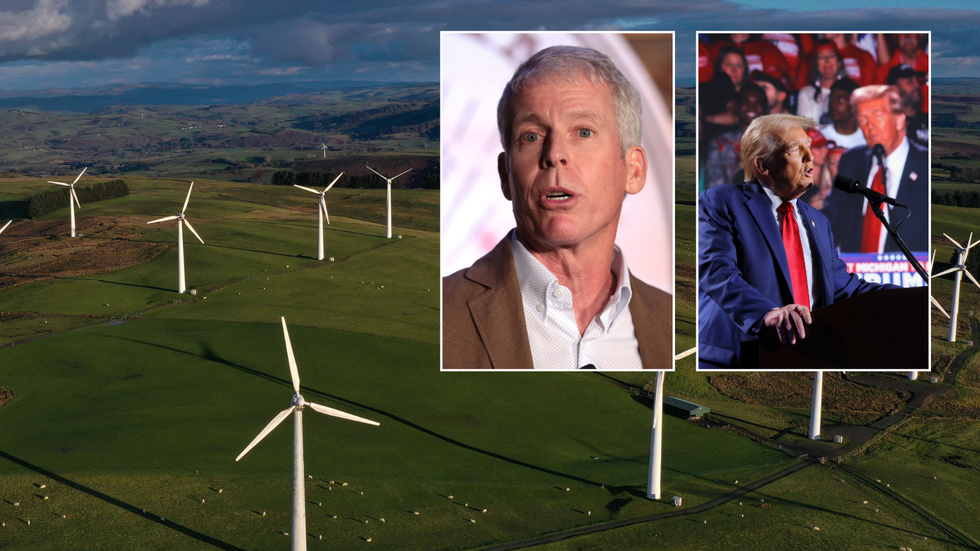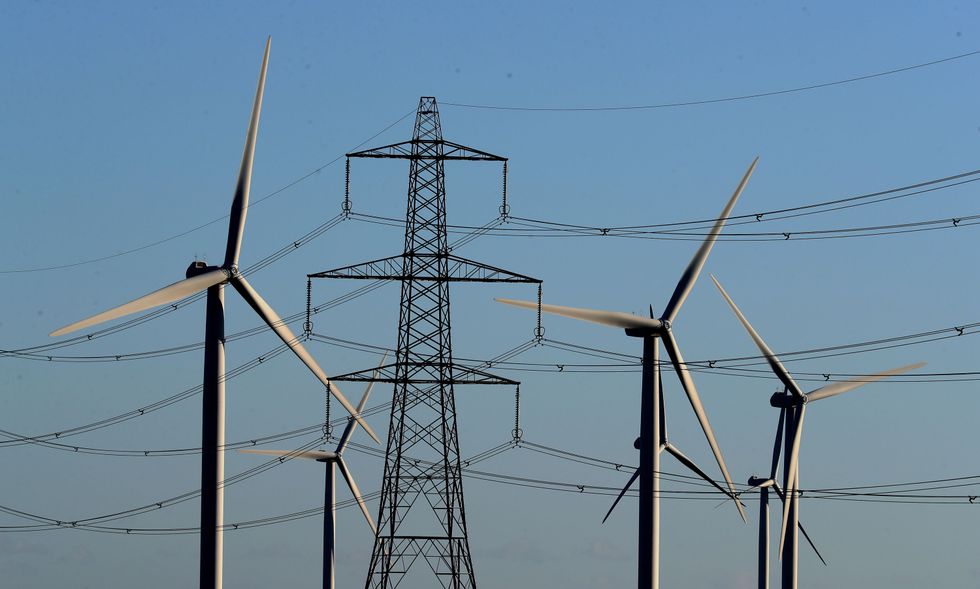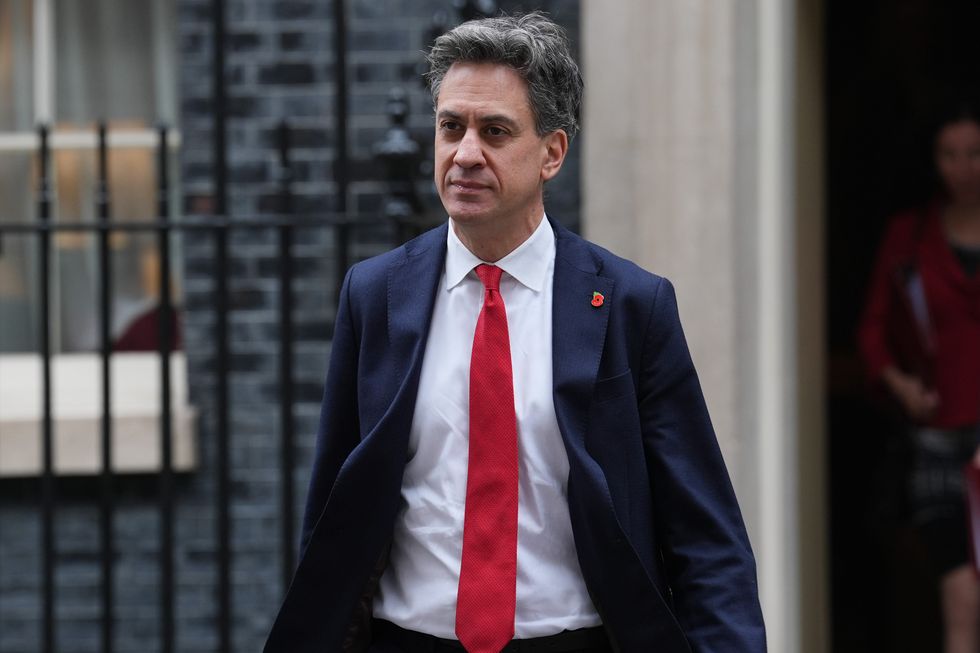Holly Bishop
Guest Reporter
Donald Trump's pick for US energy secretary has launched a scathing attack on Britain's net zero policies, claiming they have made the country poorer and driven away investment.
Chris Wright, who is being proposed for the role by the Trump transition team, said the UK's embrace of green energy had been a costly failure.
In a report released by his company Liberty Energy earlier this year, Wright suggested that abandoning fossil fuels in favour of wind and solar power had resulted in higher prices and contributed to Britain's national decline.
In Liberty Energy's annual environmental, social and governance report, Wright painted a stark picture of Britain's energy landscape.

The report highlighted that UK's total energy consumption has fallen by 28 per cent since its peak in 2005, dropping from 10.6 to 7.6 exajoules.
"The UK, although no longer part of the EU, has continued aggressive climate policies that have driven up energy prices for its citizens and industry. The results are troubling," the report stated.
Wright claimed the UK's economic decline was linked to these policies, noting that Britain now has a lower per capita income than the poorest US state.
In a breakfast meeting speech, Wright specifically targeted the UK's greenhouse gas reduction claims.
MORE LIKE THIS:



"The UK is proud that it's now the biggest percent reducer of greenhouse gas emissions of any nation on Earth. They've reduced their greenhouse gas emissions by 40 per cent," he said.
He argued this reduction came primarily from shutting down energy-intensive industries and moving production overseas.
He stated: "Things made at energy intensive manufacturing [plants] powered by natural gas in the Midlands of England, which are now shut down, are now built at a coal powered plant in China or Vietnam or Indonesia."
Wright's criticism extended to the UK's declining electricity consumption, which he noted had fallen by 22 per cent since 2003 to levels last seen in the late 1980s.
The Liberty Energy report dismissed renewable technologies as inadequate replacements for fossil fuels.

"The reality is that these politically favored technologies have not, will not and cannot replace most of the energy services and raw materials provided by hydrocarbons," the report stated.
Wright also highlighted that the UK spends over $10billion annually on net zero policies and subsidies for low-carbon technologies.
A Government spokesman defended the UK's position, stating: "Our priority is a fair, orderly and prosperous transition in the North Sea in line with our climate and legal obligations."
The spokesman emphasised the importance of protecting current and future jobs while ensuring a prosperous transition.
"We need to replace our dependency on unstable fossil fuel markets with clean, homegrown power controlled in Britain - which is the best way to protect bill payers and boost our energy independence," they added.
The clash highlights a growing divide between UK and US energy policies under Trump's expected leadership.
Find Out More...
Chris Wright, who is being proposed for the role by the Trump transition team, said the UK's embrace of green energy had been a costly failure.
In a report released by his company Liberty Energy earlier this year, Wright suggested that abandoning fossil fuels in favour of wind and solar power had resulted in higher prices and contributed to Britain's national decline.
In Liberty Energy's annual environmental, social and governance report, Wright painted a stark picture of Britain's energy landscape.

The report highlighted that UK's total energy consumption has fallen by 28 per cent since its peak in 2005, dropping from 10.6 to 7.6 exajoules.
"The UK, although no longer part of the EU, has continued aggressive climate policies that have driven up energy prices for its citizens and industry. The results are troubling," the report stated.
Wright claimed the UK's economic decline was linked to these policies, noting that Britain now has a lower per capita income than the poorest US state.
In a breakfast meeting speech, Wright specifically targeted the UK's greenhouse gas reduction claims.
MORE LIKE THIS:
- Net zero plans spark outrage as locals fume over 100 miles of pylon lines set to 'SCAR' scenic towns
- Labour Minister doubles down on commitment to its net zero commitments
- 'Labour must review its net zero goals,' urges Mel Stride



"The UK is proud that it's now the biggest percent reducer of greenhouse gas emissions of any nation on Earth. They've reduced their greenhouse gas emissions by 40 per cent," he said.
He argued this reduction came primarily from shutting down energy-intensive industries and moving production overseas.
He stated: "Things made at energy intensive manufacturing [plants] powered by natural gas in the Midlands of England, which are now shut down, are now built at a coal powered plant in China or Vietnam or Indonesia."
Wright's criticism extended to the UK's declining electricity consumption, which he noted had fallen by 22 per cent since 2003 to levels last seen in the late 1980s.
The Liberty Energy report dismissed renewable technologies as inadequate replacements for fossil fuels.

"The reality is that these politically favored technologies have not, will not and cannot replace most of the energy services and raw materials provided by hydrocarbons," the report stated.
Wright also highlighted that the UK spends over $10billion annually on net zero policies and subsidies for low-carbon technologies.
A Government spokesman defended the UK's position, stating: "Our priority is a fair, orderly and prosperous transition in the North Sea in line with our climate and legal obligations."
The spokesman emphasised the importance of protecting current and future jobs while ensuring a prosperous transition.
"We need to replace our dependency on unstable fossil fuel markets with clean, homegrown power controlled in Britain - which is the best way to protect bill payers and boost our energy independence," they added.
The clash highlights a growing divide between UK and US energy policies under Trump's expected leadership.
Find Out More...